New Skills for the Future
Jun 02, 2021History is not our only opportunity to learn. There is a huge opportunity before us to learn from exploring possibilities for the future. This type of learning has the power to guide us towards embracing uncertainty and complexity and building resiliency, agility, confidence, and innovation into our strategies to meet the workforce skill needs of the future.
Futures literacy may be the most important skill of the next several decades. Literacy is traditionally thought of in terms of the ability to read and write. In more general terms it is also knowledge in a specific area. While the critical importance of reading and writing cannot be discounted, I will argue that futures literacy is as important to the future of humanity. Futures literacy is defined by UNESCO as “a capability. It is the skill that allows people to better understand the role of the future in what they see and do [1]."
Futures literacy matters so much because decisions we make today are based both consciously and unconsciously on our thoughts about the future(s). Little time is generally spent considering possible future(s). Most time is spent examining the past and present. Taking the time to look to the opportunities and even threats on the horizon of the future(s) empowers the imagination, enhances our ability to prepare for various scenarios, recover more quickly, and invent as changes occur. These are all abilities critical to navigating the uncertainty and complexity of today’s world and move beyond it.
Futures literacy is a skill that everyone can and should acquire. It is a skill that is within everyone’s reach. The future does not exist, it can only be imagined, and humans have the ability to imagine. The implications of futures literacy go far beyond simply imagining what might be possible in the future. It impacts many areas and skills.
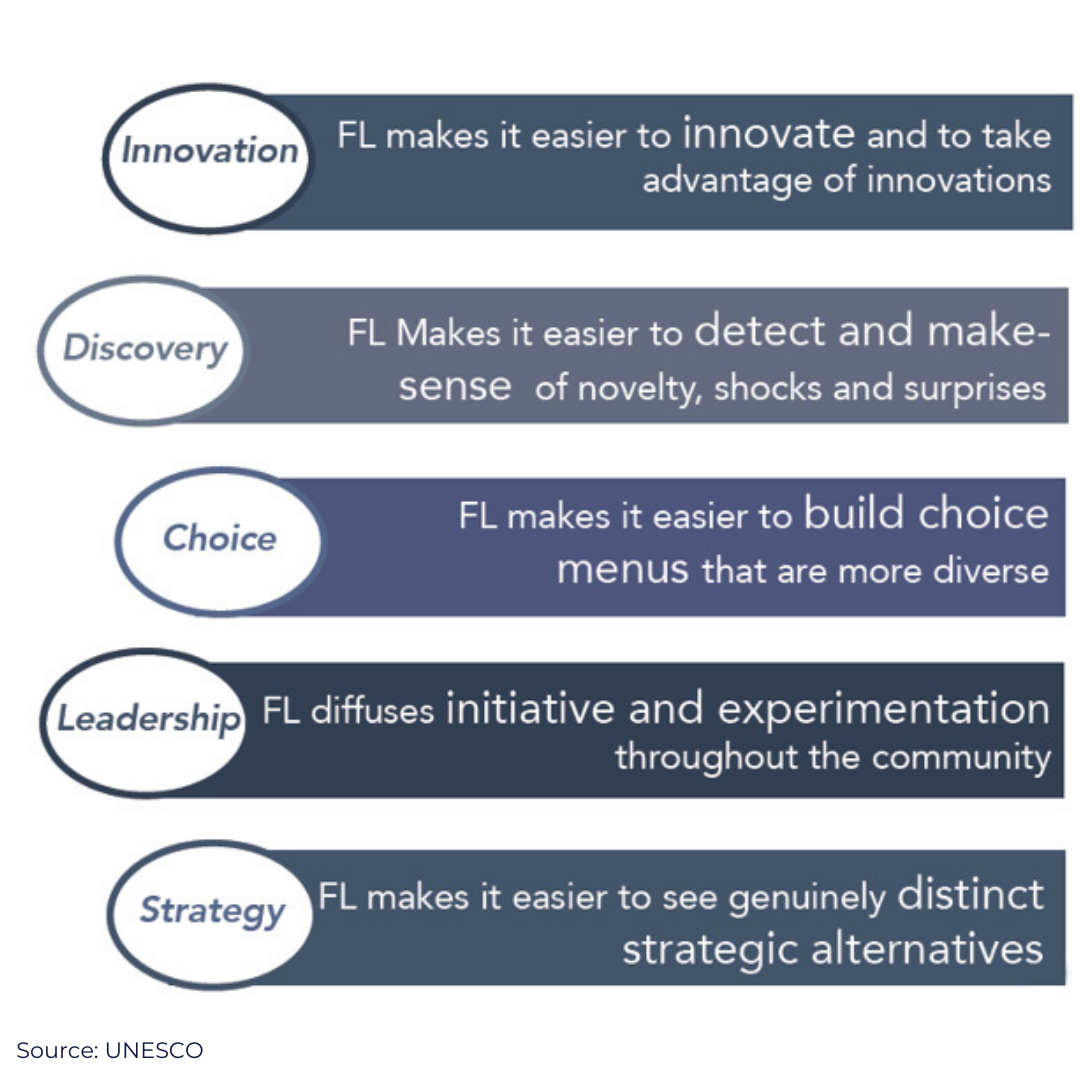
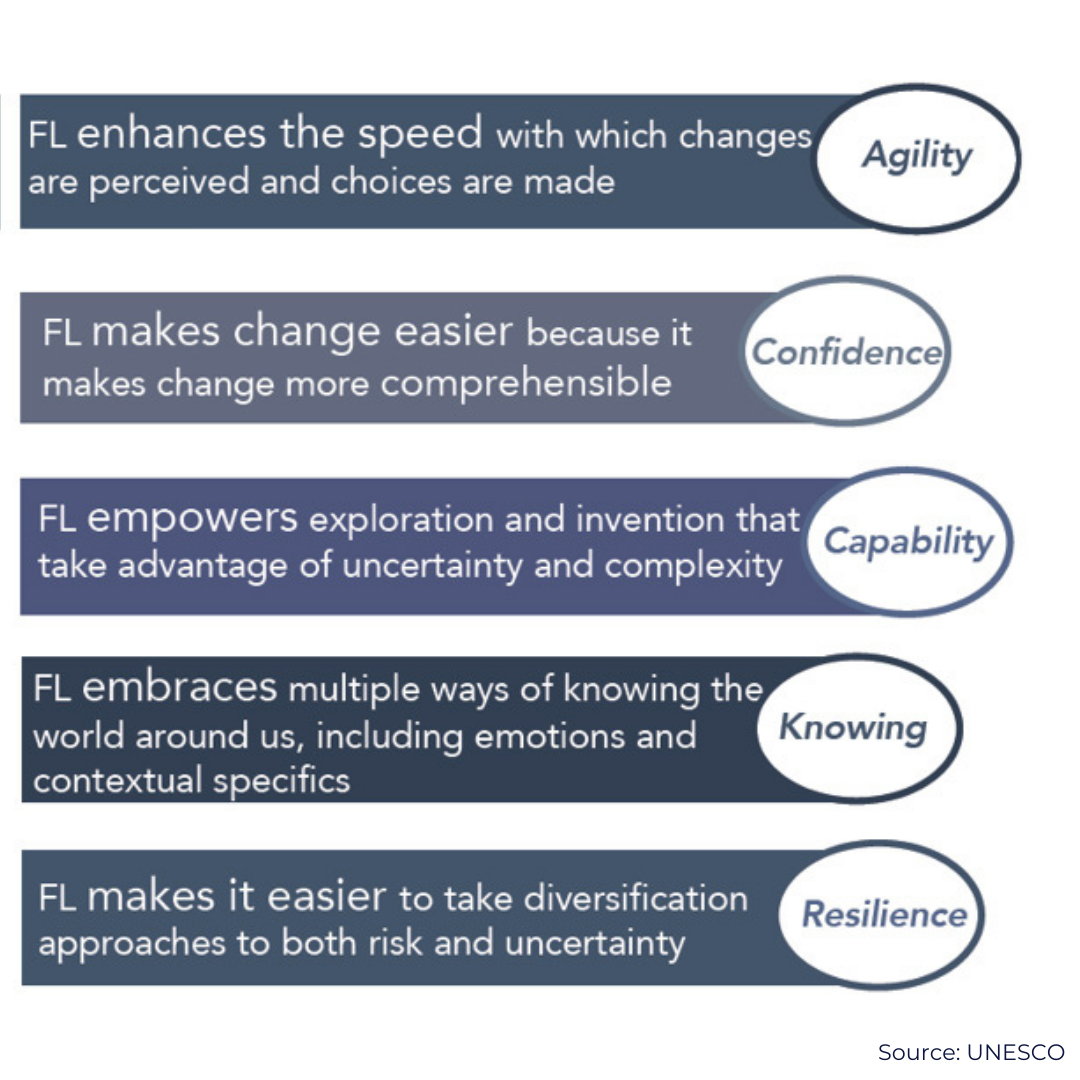
Futures Literacy has real implications on what skills are important in the workforce of the future. The World Economic Forum (WEF) provides an outlook of the workforce skills needed for the future. For 2022 old skills we have thought of as very important such as memorization, quality control, technology use, and time management are actually on the decline [2]. New skills like innovation, creativity, complex problem solving, ideation, and others are on the rise. Intangible value creation is overtaking hard skills previously sought after.
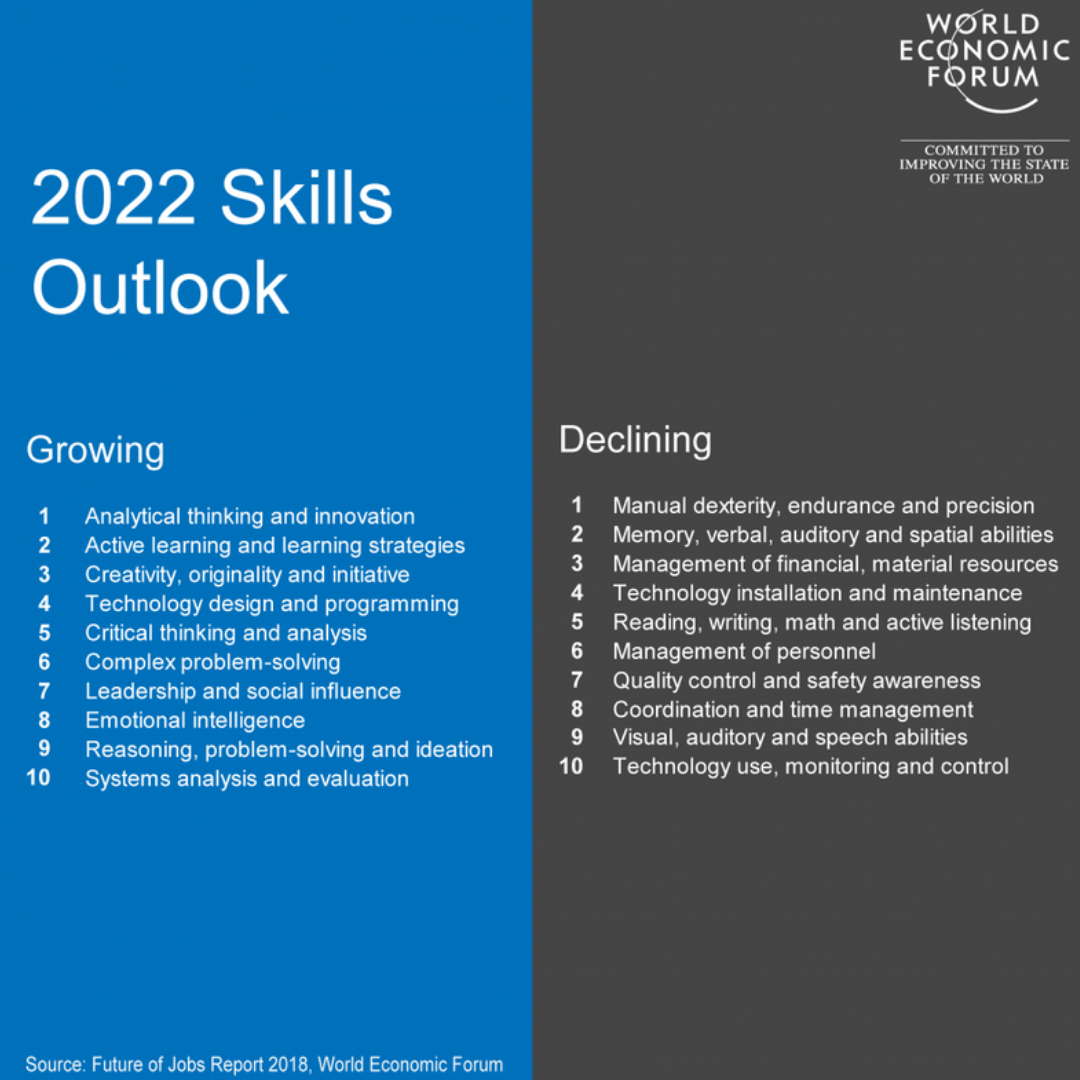
In the WEF skills outlook for 2025, newer intangible skills are still projected to be growing in demand [3]. I venture to say these are the most important skills of the 21st century.
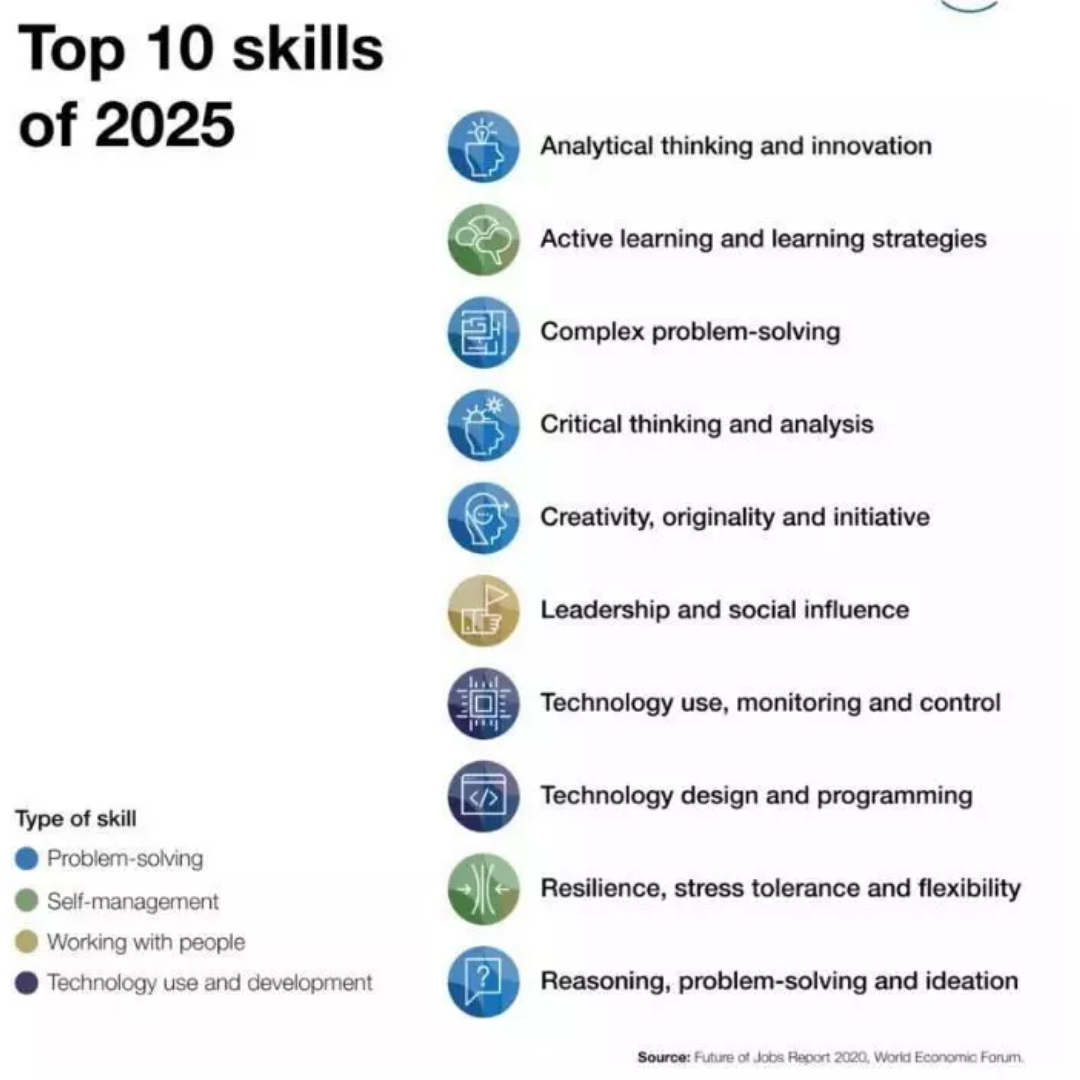
Are these new intangible skills being prioritized by our educational institutions and workplaces or are they still stuck on the declining list of industrial age linear thinking skills? In terms of education, imagine for a moment you are a character in a book in the 1800’s like Laura Ingles Wilder in Little House on the Prairie. Here is an image of her classroom from the television show of the same name:
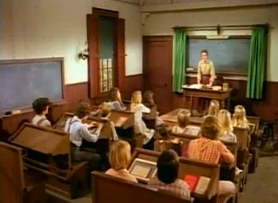
Here is a modern-day classroom (pre-pandemic):
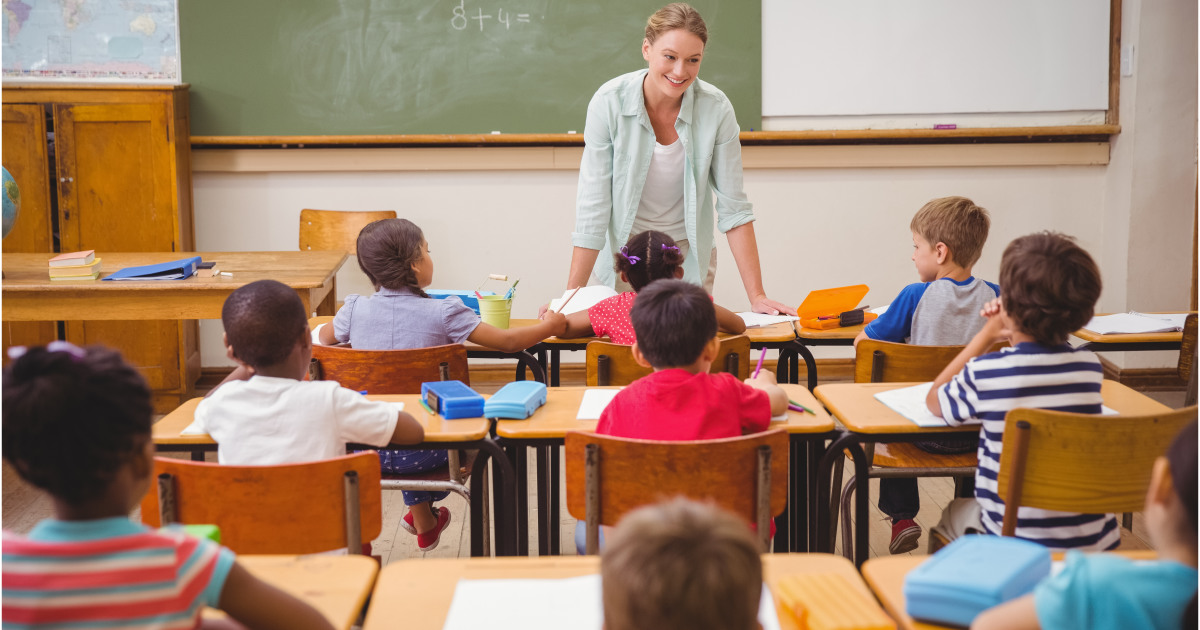
Now think about that question again. Are we stuck in the past or are we moving forward? It’s hard to picture learning how to use your imagination and create future innovations in a setting that essentially hasn’t changed much in over 150 years.
While classrooms have changed significantly over the last year as a result of the pandemic, many people are itching to get back to pre-pandemic classrooms. What if the pandemic has given us an opportunity to reimagine both what our classrooms and learning environments look like and what skills should be taught within them? Can you envision a classroom where imaginations can be fully engaged and activated to learn not only from history and the present, but from the possibilities of the future(s)?
Incorporating the needed intangible workforce skills into learning environments might create an image of a classroom (lasting longer than a pandemic) that Laura Ingles Wilder wouldn’t recognize.
Stay connected with news and updates!
Join the mailing list to receive the latest blog posts and updates.
Don't worry, your information will not be shared!
We hate SPAM. We will never sell your information, for any reason.

